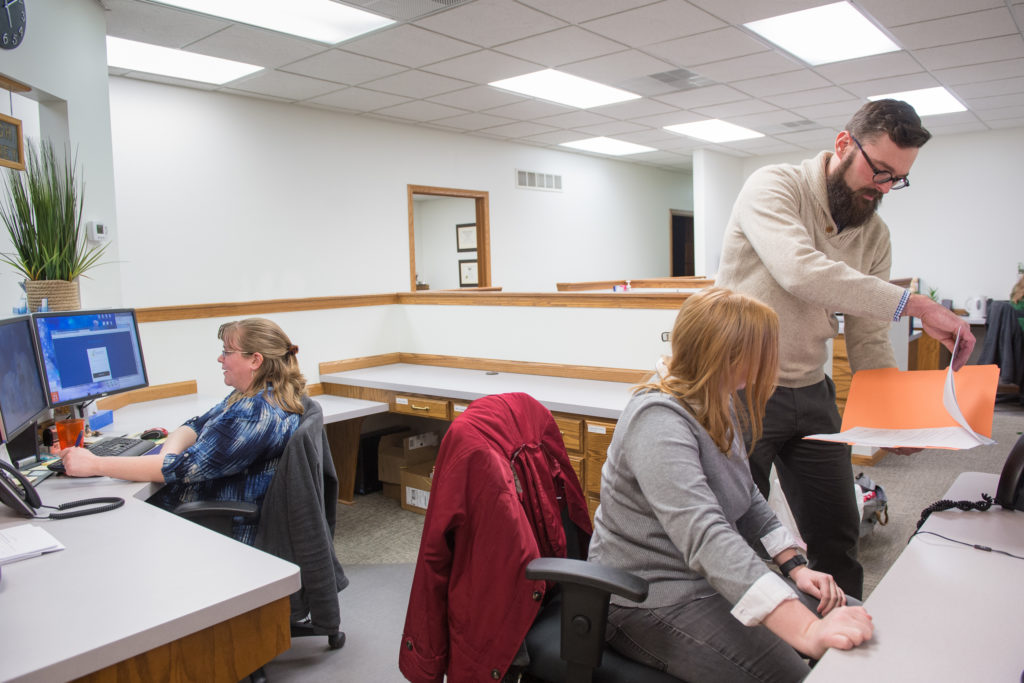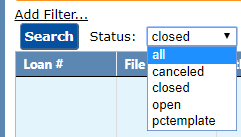Getting Deed Packets signed early is an essential part of the closing process. It helps your Closer calculate certain fees, pull payoffs if there are any, and makes it possible to verify information for post-closing tasks well in advance
There are quite a few documents in every deed packet and it might be difficult to remember what they all mean if your client asks, so today I will walk through our Deed Packets and what each document is used for. As always, our team remains available to answer questions that you or your client might have about completing these documents. So don’t hesitate to give us a call!
Fraud Warning Fact Sheet
We use this form to make our clients aware of wire fraud and our partnership with CertifID to ensure that all wire instructions are verified and insured when the funds leave our office via wire transfer. Each statement will need to be read and initialed and then signed at the bottom.
Authorization for Release of Information (Payoff Requests)
This form allows us to request payoffs for existing mortgages in order to clear them at closing. The more information provided, the easier it is for the closing agent to obtain the payoff. Along with the signature line is a place to include the Sellers SSN and the date they signed the release.
1099 Tax Information Sheet
The top portion of this form will need to be filled out completely with the Seller’s Address, Phone number, and SSN or EIN. This will help us send out accurate 1099s the following January.
Proceeds Instruction Sheet
These are instructions for us to disburse the proceeds and how to get them to the Seller in the transaction. Once a selection has been made from the list we will need the form signed and returned with the rest of the packet. These instructions can always be changed by signing a new form with new instructions.
Authorization to Pay Commission
If there is a realtor, this one allows us to get the realtor paid at closing in the accurate commission amount as designated by the Agreement. It will need to be filled out whether there is a commission percentage or flat fee. If there is a Seller Realtor Admin fee, there is a place to include that as well and then it will be signed by both Seller and Listing Agent.
Homeowners Information Sheet
Not all packets will include this form. If the real estate is not located in a subdivision or we know that there are no HOAs in a certain subdivision, we will not include this. If it is in the packet, we will need to know if there are HOAs. If there are not, the “No” box will be checked and you can move to the next form. If there are HOAs then the “Yes” box will be checked; please complete as much of the HOA contact information as possible.
Authorization for Release of Information to Designated Realtor
This form will not change how we treat the transaction. Sellers have the option to direct us not to share their private information with the Buyers Realtor. If the top box is checked, directing us not to share information with anyone other than their realtor or lender, then we cannot and will not share a settlement statement with anyone, even those involved in the transaction, other than their realtor and lender.
NOTE: To prove commissions have been applied appropriately we can send a heavily redacted version of the ALTA settlement statement that only shows commission amounts and the Sellers signatures.
Covid-19 Notice of Possible Delays
This one is a notice that lets everyone know that there could be delays related to Covid-19 with getting documents recorded, back from recording and getting final policies issued.
Notary Instruction, Identification Verification and Notary Information and Certification
When documents are notarized, our office needs proof that the notary checked the identification of the signor and that the notary is in good standing with the state in which they are bonded in. It will also help in the event that we need to contact the notary if we have any questions regarding the notary’s information.
Affidavit as to Debts, Liens and Indemnity
This affidavit is a statement made by the seller that there are no liens or potential liens, or that no one holds an interest in the real estate that we would need to clear up prior to closing. This will need to be signed in front of a notary.
Limited Power of Attorney
We include a Limited Power of Attorney in all of our packets for Sellers to utilize. If signed it allows the realtor to sign settlement statements and any Buyer loan docs on behalf of the Seller. It is not required and is solely at the option of the Seller to sign.
Deed
The Deed varies as much as the transaction itself as to what kind of Deed is used to transfer the real estate. This will need to be signed by everyone who holds an interest in the real estate to complete a free and clear transfer. We hold the deed in our office until the transaction is closed and funds have been disbursed. At that time we record the deed with the county register of deeds to complete the transfer. The original will be sent to the buyer with the final loan policy.
In addition to the above, other documents may appear in a deed packet on a case by case basis.
Affidavit of Non-Production – Used to clear existing expired oil and gas liens.
Affidavit of Child Support or Spousal Maintenance – Used to clear divorce/child support cases.
Certificate of Trust – Used to prove the trustee signing has authority to sign.
Corporate Resolution – Used to prove the signor of a company has authority to sign on behalf of the company.
Affidavit of Death – Takes the place of a death certificate to clear title.
The earlier in the process we can get these documents signed and back to our office, the smoother we can make the whole closing process. Everyone in our office is a notary and we are more than happy to meet with clients to get Deed Packets signed.
We do offer a free courier service and can send someone to you to get everything signed if you just can’t get away. Just call our office and set an appointment for a time that works best for you.











 Once you find the document you are looking for in the list of Descriptions click on the
Once you find the document you are looking for in the list of Descriptions click on the  Dear clients and friends,
Dear clients and friends,